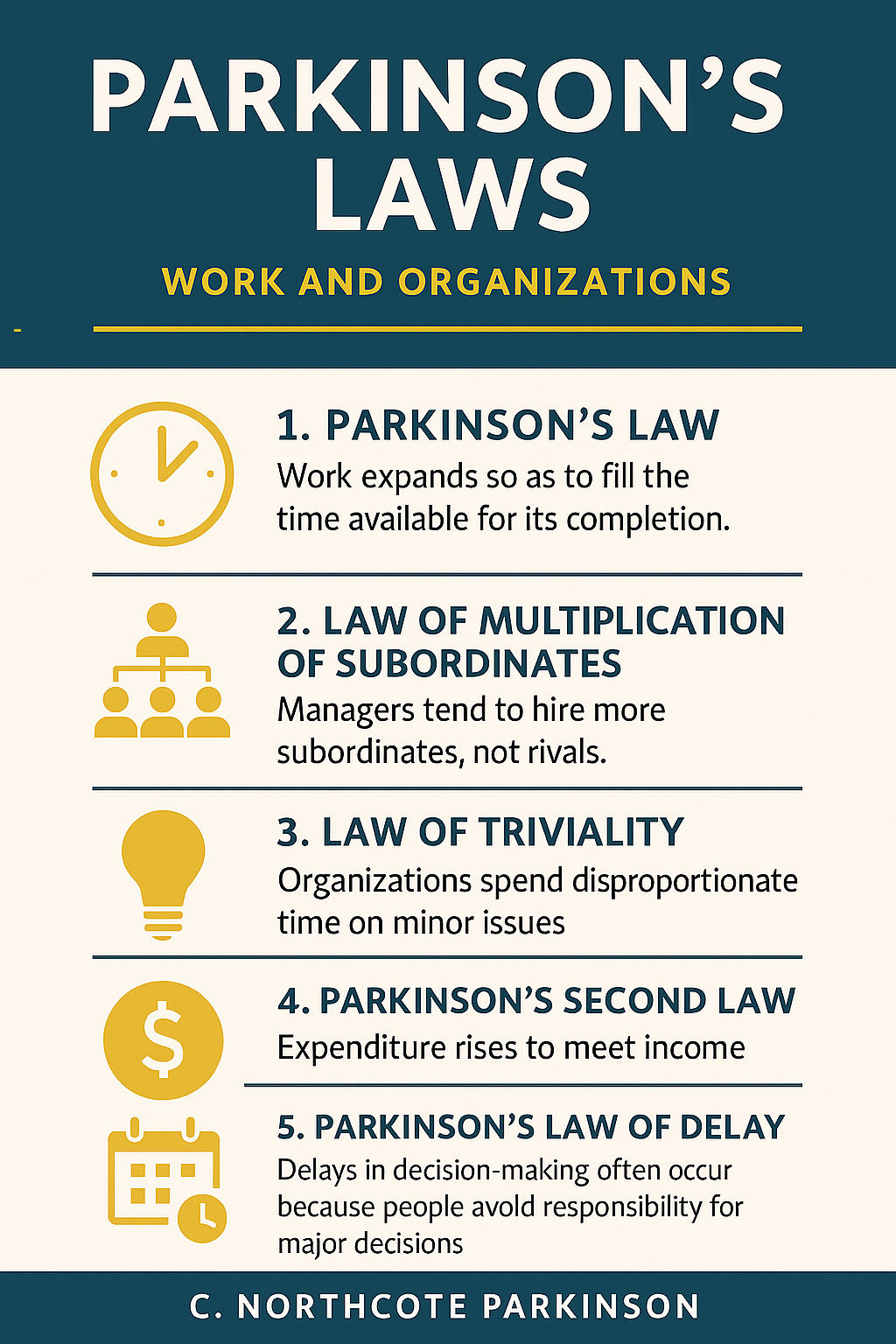Summary
Cyril Northcote Parkinson (1909–1993) may not be a household name, but his insights into organizational behavior remain as relevant as ever. Best known for Parkinson’s Law—“Work expands so as to fill the time available for its completion”—his observations still shape management thinking today.
Cyril Northcote Parkinson (1909–1993) may not be a household name today, but his insights into organizational behavior remain as relevant as ever. Best known for Parkinson’s Law—“Work expands to fill the time available for its completion”—his observations still shape management thinking today.
1. The Birth of Parkinson’s Law
First published in The Economist in 1955, Parkinson’s Law revealed a universal truth: inefficiency tends to increase over time. In bureaucratic settings, research has shown that administrative staff often increase in number, regardless of workload, creating layers of complexity and cost.
2. Why It Matters for Business
Parkinson’s work wasn’t just satire; it was a warning.
He introduced concepts like:
The Law of Multiplication of Subordinates – managers hire to build empires, not efficiency.
The Law of Triviality – teams spend more time debating minor issues than major ones.
Expenditure rises to meet income.
Delays in decision-making often occur because people tend to avoid taking responsibility for major decisions.
Committees of more than 1,000 members have become completely ineffective.
These principles explain why projects balloon in scope and why decision-making stalls in many organizations.
3. Bureaucracies Grow Regardless of Workload
Parkinson observed that the number of employees in a bureaucracy increases by 5–7% annually, regardless of whether the workload changes. This means bureaucracies expand even when their actual responsibilities shrink. For example, he noted that the British Colonial Office had its largest staff when
4. Beyond Bureaucracy
Parkinson also coined the phrase “Expenditure rises to meet income.” This insight applies to both governments and businesses, reminding leaders that unchecked budgets lead to waste.
5. Lasting Impact
From corporate boardrooms to government agencies, Parkinson’s ideas remain relevant. In an era of remote work and digital transformation, his message is clear: simplify, prioritize, and resist unnecessary growth.
Takeaway: If your team is drowning in meetings and reports, ask yourself—are you managing work, or is work managing you?
